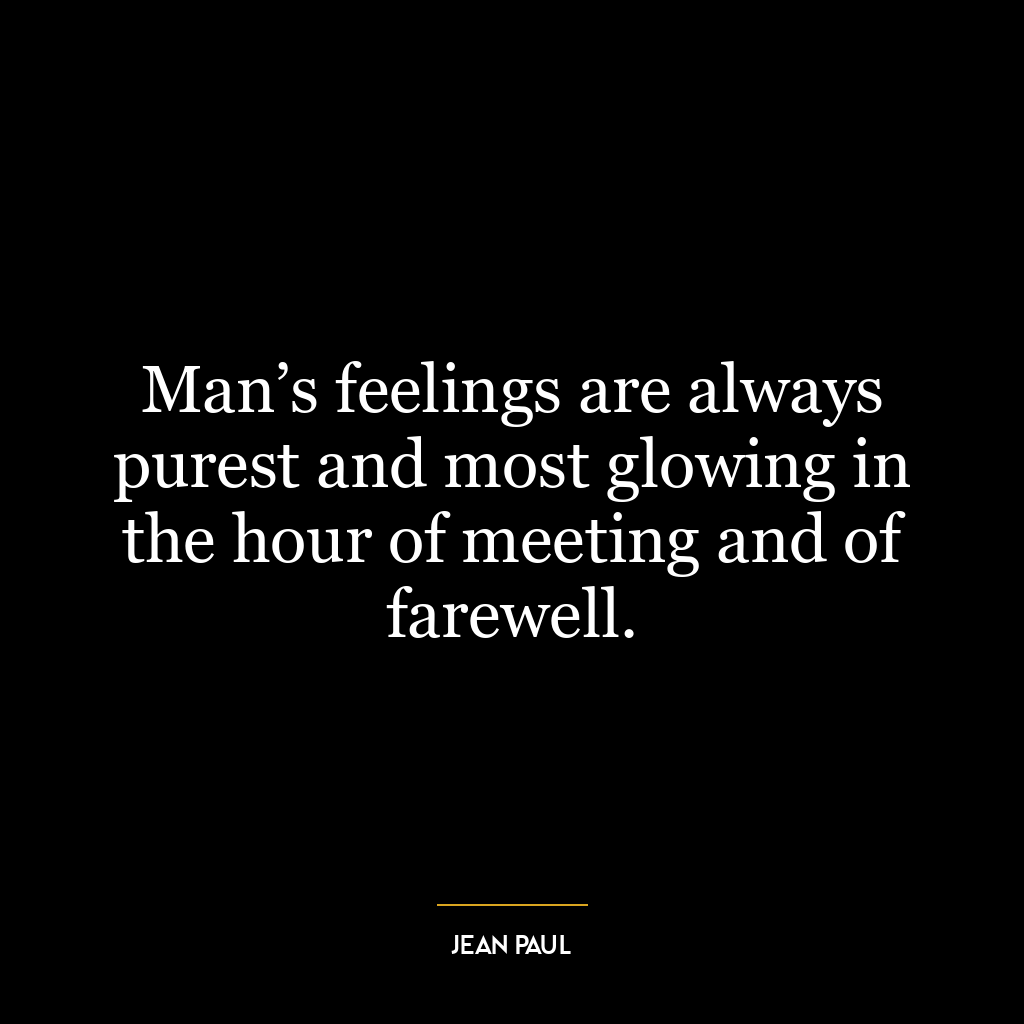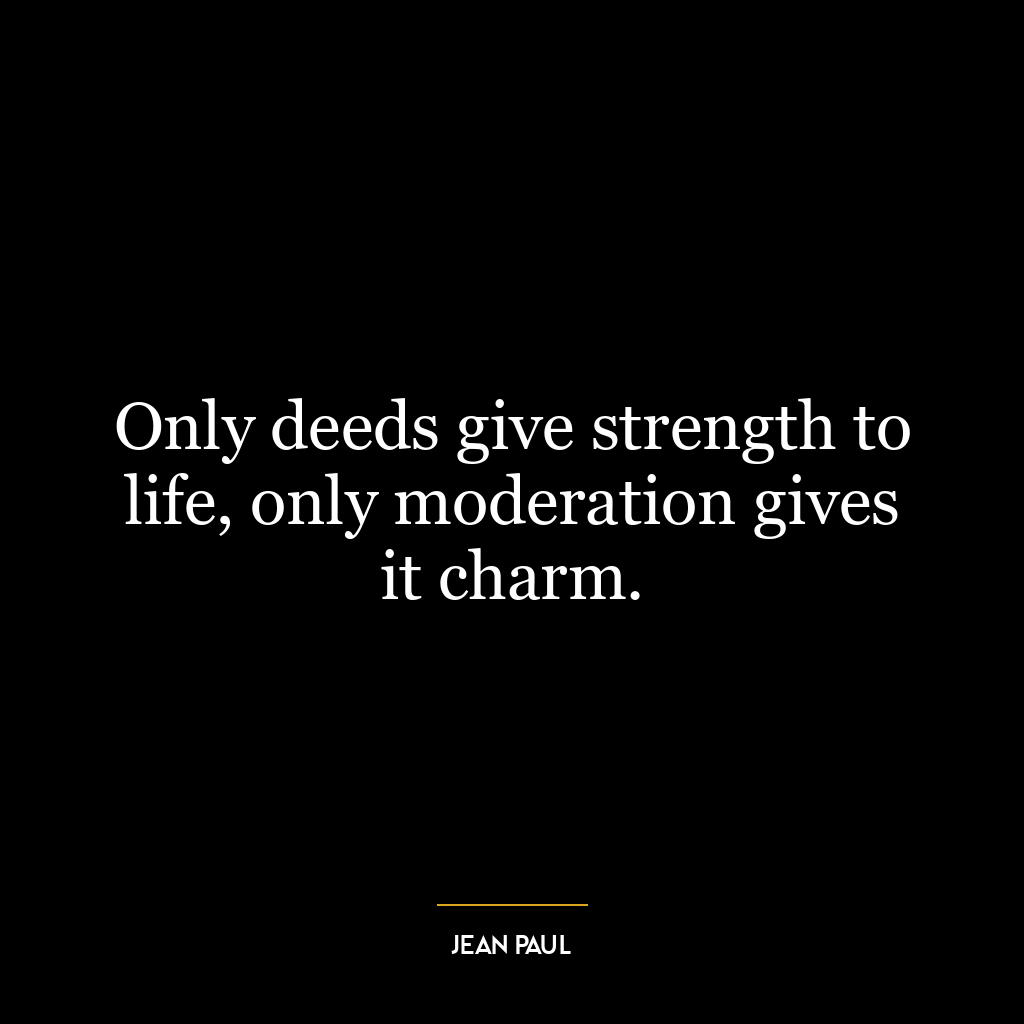This quote emphasizes the importance of the quality of our lives over the quantity. It suggests that the value of our lives is measured not by how many years we live, but by the deeds we perform, the thoughts we have, and the feelings we experience.
The phrase “We live in deeds, not years” suggests that our actions and contributions to the world are more significant than the mere passage of time. It’s not about how many years we’ve lived, but about what we’ve done with those years. This could be interpreted as a call to action, urging us to make our lives meaningful through our deeds.
“In thoughts, not breaths” implies that our cognitive processes, ideas, and creativity are more important than the simple biological function of breathing. The quality of our thoughts can greatly influence the quality of our life. It’s not about how many breaths we’ve taken, but about what we’ve thought and created during our time.
“In feelings, not in figures on a dial” suggests that our emotional experiences and relationships are more valuable than the numerical measurement of time. Our emotions and feelings make us human and give depth to our existence. It’s not about how many hours, days, or years we’ve clocked up, but about how deeply we’ve felt and loved.
Applying this idea to today’s world or personal development, we might say that it encourages us to focus on meaningful actions, innovative thoughts, and deep emotional experiences rather than obsessing over our age or the passage of time. It invites us to live fully and deeply, to contribute positively to the world, to think creatively and critically, and to cultivate rich emotional lives. In a world often obsessed with youth, longevity, and quantifiable productivity, this quote offers a refreshing perspective on what truly matters in life.









